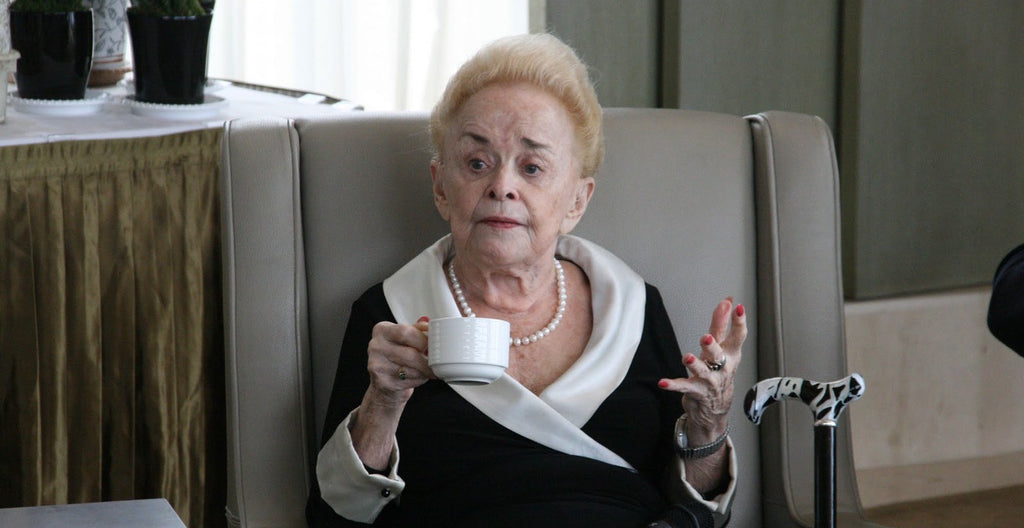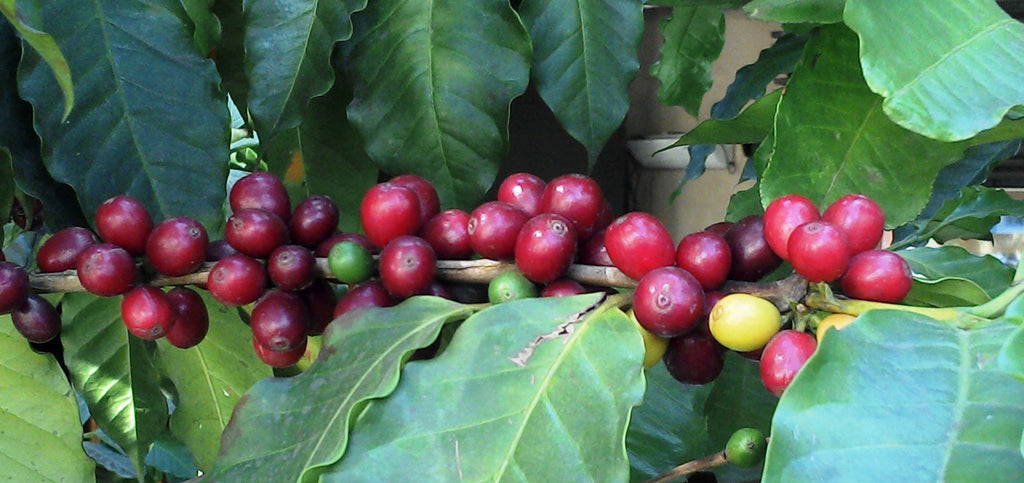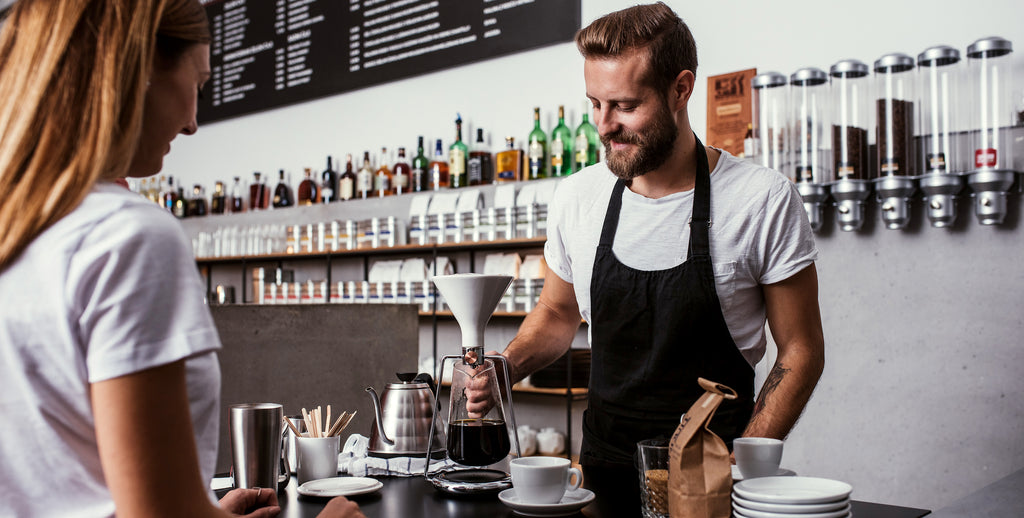About a bean: Special(ty) people
Let’s go back a few decades to learn a little bit about how specialty coffee got its name. The year was 1978. The speaker was Erna Knutsen at an international coffee conference in Montreuil, France, where she used the term Specialty Coffee. She referred to specialty coffees as beans with unique flavor profiles that are a result of special microclimates. The beans should be well prepared (grown and processed), freshly and carefully roasted, and properly brewed.
Her speech was a brief explanation of the craft that had been evolving for years before and is the base of the specialty coffee movement we are seeing worldwide. Today we are remembering the words of the late Erna Knutsen and we are taking a quick tour of specialty coffee. From farm to cup.

The term "specialty coffee" was coined by (the late) Erna Knutsen, a true coffee legend.
To start, let’s take a look at our coffee options. “Regular” coffee as we know it is mostly a synonym for mediocre (even bad) quality coffee that lacks sustainability and transparency. This is the “old”, mass-produced type of coffee, where respect to workers that produce and process it is neglected. The attitude shows in your cup, resulting in a bland cup of coffee with no clear character, except the one that is infused into the cup using milk, sugar, syrups, and other gimmicky additions.
Specialty coffee is different by design: a thought out range of varietals, grown with special care by workers who take extra care, roasters who enhance the flavors in a bean, and baristas who give the cup the final touch. It’s the attitude of everyone involved that can produce an 80+ coffee.
Let’s take a quick glimpse at who makes your coffee truly special(ty).
The Grower
The first steps towards specialty coffee go way back, all the way to the soil. The farmer, after carefully selecting which varietals he will grow on his farm, will plant the seed. It takes a good quality seed that needs to be planted in the right place at the right time. It takes three to four years for a coffee plant to start producing those lush red berries. Our plant is ready for harvest. The farmer will take great care to hand-pick only ripe berries. Nowadays farmers even turn to science for the perfect harvest time, measuring the sugar content in coffee berries to get the best results. It’s tough work, but it pays off, as unripe berries will be left to ripe and picked at a later time, at the peak of their ripeness.

Once all the berries from a harvest are gathered, the coffee needs to be processed quickly to prevent them from spoiling. There are several processing methods that are each suited to the specific region, varietal or other factors. It’s up to the farmer to decide how to process the cherries, but nevertheless it is one of the most important steps in the coffee’s journey from soil to cup. You can read more about coffee processing here.
After the coffee is dried it needs to be sorted by size and weight. During the sorting, farmworkers take extra care to remove damaged and off-colored beans. Why? Because a single bad bean (underripe, overripe, broken, rotten, or otherwise defect) can ruin the taste of your morning cup of coffee. Yes, a single bean.
All that's left is to pack the coffee in those trademark brown jute or sisal bags and prepare it for its next step.
The Taster and Green Coffee Buyer
The next in line, waiting for his share of contributing to the perfect cup of coffee is the green coffee buyer, who employs an SCA Certified Coffee Taster or a Coffee Quality Institute Licensed Q Grader. These are exceptional tasters, who have a sommelier-like palate and have a cupping system of determining the quality of a bean. The coffee taster will give the coffee a score on a scale of 100 (with 80+ being specialty coffee) and will select the coffees to be included in the offering. The taster will also determine the taste notes and descriptions of the coffee. The role of the green coffee buyer and taster is immensely important, as he is the one who passes on the information about a coffee to the roaster and coffee shop staff.
A coffee taster grade can be a tipping point for the farmer that produced the graded coffee. The price for an exceptionally well-graded set of beans can be life-changing for a farm, boosting the price of the raw beans. That means a better life for the farmer with more investment in machinery, processing, and developing even better quality beans in the years ahead.
The Roaster
The roaster has a tough job even before he warms up his big bad roaster. First, there is the question of the coffee selection. A series of samples from green coffee buyers are roasted and cupped and finally, a selection of green coffee to be roasted is made.
Roasters may be certified by SCA or other organizations, but most importantly, specialty coffee roasters are people who know the bean to perfection. Coffee roasting is an art form that requires exceptional knowledge and years of training to create roast profiles that will fit and honor a specialty coffee bean.
The roaster must have a vast knowledge of coffee chemistry and processes that run in a bean during roasting, along with knowledge of heat transfer, thermodynamics and so much more. All this knowledge and practice culminate in a roasted bean of the highest standard of quality.
The roaster is also the next step in quality control. He goes hands-on through the green beans, eliminating defects. And after the roast, he will check the batch for bad beans that can ruin the flavor in a cup.
The Barista
Finally, the beans have reached their final destination – the coffee shop (or your home, of course). The beans that arrive in a coffee shop are already rigorously checked, tested, and are indeed top-quality specialty beans, ready to shine in a cup.
The barista is again a skilled professional who has completed numerous brewing courses and hands-on brewing practices. He is the one who completes the journey of specialty coffee. A specialty coffee barista is not only a master of the brewing art that knows his coffee gear to perfection. He is also the source of knowledge for the end consumer.

While brewing the coffee to perfection and extracting all the flavors from a bean, the barista will put the coffee brewed into context, explaining to the consumer the origin of the coffee, the flavors that they are about to experience while showcasing the brewing methods. The barista is the final promoter of specialty coffee.
Respect
Let us not forget that every bean is produced with one goal in mind – to offer the end consumer a great quality cup of coffee. There is no use for any of the people working hard in their mission for great coffee if there is no one to consume it. We as consumers are the ones that choose. It doesn’t matter whether we get our cup from a coffee shop or brew it at home - after reading about the hard work of everyone involved in the journey from a small plant to a flavorful cup of coffee, we know you will make a wise choice - a kick-ass cup of specialty coffee.







